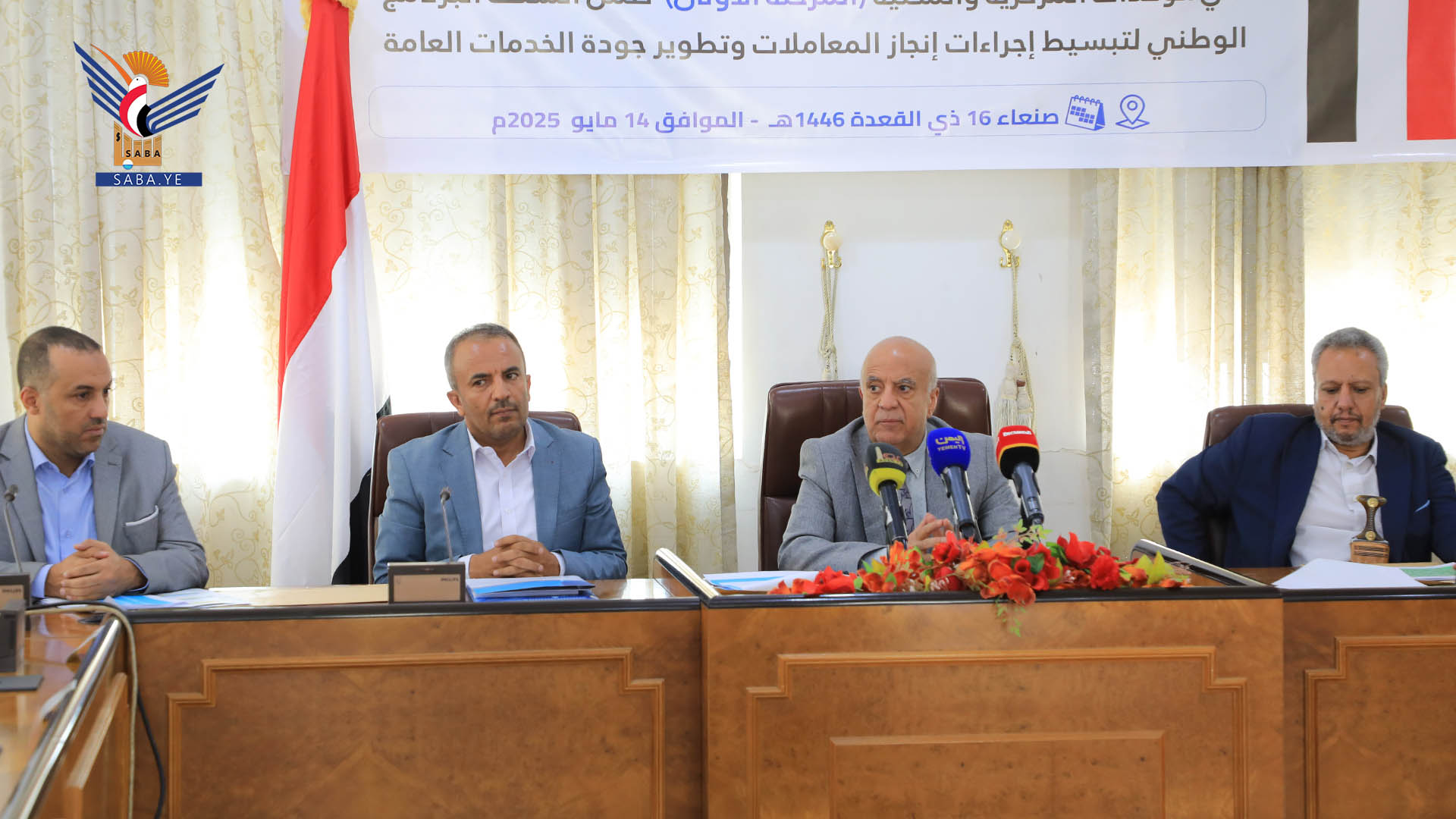Sana'a - Saba:
Prime Minister Ahmed Ghaleb Al-Rahwi launched on Wednesday the first phase of the inspection and evaluation process for public services in central and local government units.
The Prime Minister emphasized the importance of diagnosing the reality of government service delivery, identifying areas for reform , development, assisting agencies in improving service mechanisms and procedures. He also stressed the need to establish a culture of inspection, evaluation, and performance measurement.
"It is crucial in this phase to focus primarily on diagnosing the reality of government service delivery, identifying suitable reform , development aspects, helping agencies enhance their service mechanisms and procedures," he said.
He noted that the inspection and evaluation process stems from a sense of responsibility toward the people, striving to serve them and ensuring their satisfaction with the services provided. He explained that the success of any service facility or official is measured by the level of public comfort , satisfaction with their performance and the quality of services delivered.
The Prime Minister urged all public service units to enable evaluation teams to assess public services, verify the level of procedural simplification, implement service manuals in central and local units. He called for cooperation to accomplish these tasks.
He stressed the need for these units to collaborate with the National Team for Procedures Simplification to complete required projects and activities, including streamlining transaction procedures, establishing and developing citizen service centers, enhancing the integrated complaints system, monitoring service quality, combating extortion and bribery.
Al-Rahwi directed the swift completion of service manuals in ministries and provinces that have not yet finalized them, in coordination with the Ministry of Civil Service and Administrative Development, and submitting them to the National Team in accordance with the approved executive framework. He also highlighted the importance of all units coordinating with the Ministries of Civil Service and Communications & Information Technology to complete the development and activation of the unified electronic system for citizen service offices and transaction tracking in public service units, linking it to the Prime Minister’s Office and relevant authorities for real-time monitoring.
For his part, Dr. Khaled Al-Hawali, Minister of Civil Service and Administrative Development, stated that serving the people is the fundamental responsibility of state institutions.
He noted that the inspection and evaluation process significantly contributes to performance improvement and successful task execution, particularly for those driven by a sincere commitment to identifying errors, shortcomings, and difficulties to address them effectively, thereby positively impacting service providers.
Al-Hawali pointed out that periodic service evaluations ensure fairness in service delivery and measure public satisfaction, as people’s contentment reflects peak success. He reaffirmed that the service simplification program is among the government’s top priorities, with efforts focused on enhancing its success and practical impact.
He stated that, guided by the wise leadership’s directives and aiming to achieve the desired goals of public service units, the inspection and evaluation process will be implemented through two integrated tracks: the first assessing government service centers’ performance, and the second evaluating the implementation of service manuals by establishing a general evaluation framework covering readiness, responsiveness, mechanisms, procedures, and administrative processes. This, he said, will contribute to improving service centers’ performance and enhancing service quality.
Meanwhile, Anis Sufyan, Deputy Minister of Civil Service and Head of the National Team for Simplifying Transaction Procedures and Service Quality Development, reviewed the team’s key accomplishments and ongoing projects in various central public service units as part of the first phase. These include projects to simplify procedures, establish and develop citizen service centers, enhance the citizen complaints system, monitor service quality, combat extortion and bribery.
He also outlined the preparation and implementation stages of the public services inspection and evaluation process, which included developing manuals, standards, forms, work mechanisms, and guidelines for evaluation teams, as well as forming inspection and evaluation teams from relevant authorities.

| more of (Local) |




